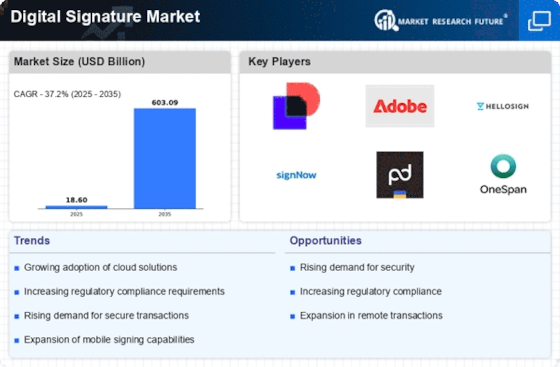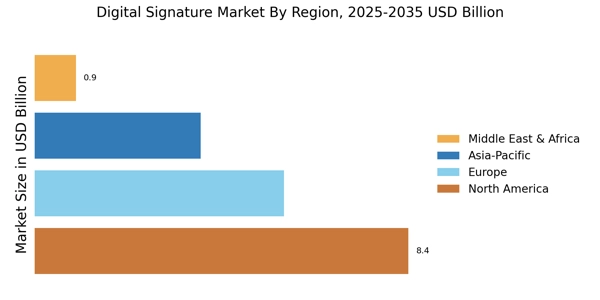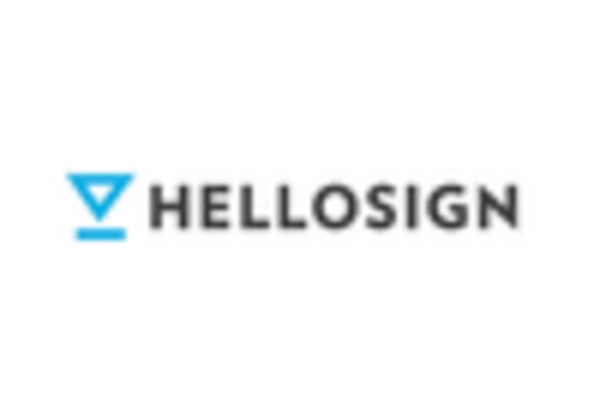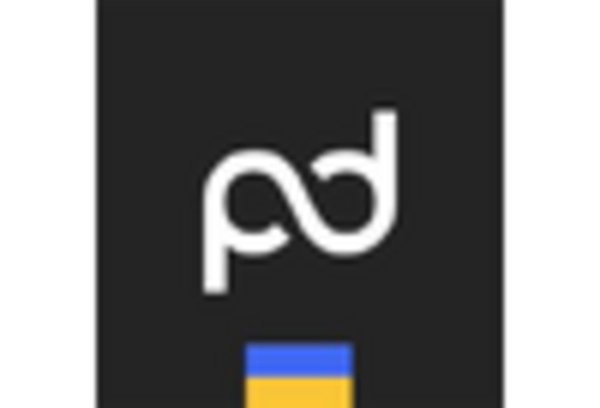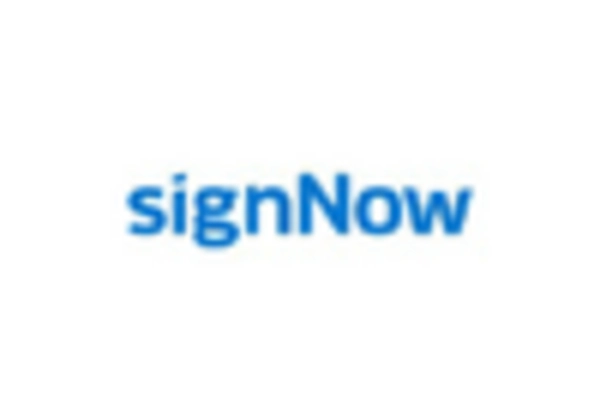Rising Cybersecurity Threats
The Digital Signature Market is increasingly influenced by the rising threats of cyberattacks and data breaches. Organizations are becoming more aware of the vulnerabilities associated with traditional signature methods, prompting a shift towards digital signatures that offer enhanced security features. The integration of advanced encryption technologies in digital signature solutions is addressing these concerns, making them a preferred choice for businesses. With the global cost of cybercrime projected to reach trillions of dollars, the urgency for secure signing methods is driving market growth. Companies are investing in digital signature technologies to safeguard sensitive information and maintain trust with clients and stakeholders.
Growing Need for Remote Work Solutions
The Digital Signature Market is witnessing a notable increase in demand driven by the growing need for remote work solutions. As organizations continue to embrace flexible work arrangements, the reliance on digital documentation and electronic signatures has become paramount. This shift is particularly relevant in sectors such as real estate, where transactions often require swift and secure signing processes. The market is expected to expand as businesses seek efficient ways to manage contracts and agreements remotely. Analysts indicate that the adoption of digital signatures could potentially reduce transaction times by up to 80%, thereby streamlining operations and enhancing productivity in a remote work environment.
Regulatory Compliance and Security Needs
The Digital Signature Market is experiencing a surge in demand due to increasing regulatory compliance requirements across various sectors. Governments and organizations are mandating the use of digital signatures to ensure the authenticity and integrity of electronic documents. This trend is particularly evident in industries such as finance, healthcare, and legal services, where stringent regulations necessitate secure and verifiable transactions. As a result, the market is projected to grow significantly, with estimates suggesting a compound annual growth rate of over 25% in the coming years. The emphasis on security and compliance is driving organizations to adopt digital signature solutions, thereby enhancing the overall market landscape.
Increased Focus on Operational Efficiency
The Digital Signature Market is benefiting from an increased focus on operational efficiency among businesses. Organizations are recognizing the potential of digital signatures to streamline workflows and reduce administrative burdens associated with paper-based processes. By adopting digital signature solutions, companies can significantly decrease the time and resources spent on document management. Reports suggest that businesses can save up to 30% in operational costs by transitioning to digital signatures. This drive for efficiency is particularly pronounced in sectors such as manufacturing and logistics, where timely documentation is critical. As organizations seek to optimize their operations, the demand for digital signature solutions is likely to rise.
Expansion of E-Commerce and Online Transactions
The Digital Signature Market is experiencing growth fueled by the expansion of e-commerce and online transactions. As more consumers and businesses engage in digital commerce, the need for secure and reliable methods of signing contracts and agreements has become essential. Digital signatures provide a solution that enhances trust and security in online transactions, thereby facilitating smoother business operations. The e-commerce sector is projected to grow exponentially, with estimates indicating a potential increase in online sales by over 50% in the next few years. This growth is likely to drive the adoption of digital signature technologies, as businesses seek to protect their transactions and ensure compliance with legal standards.

